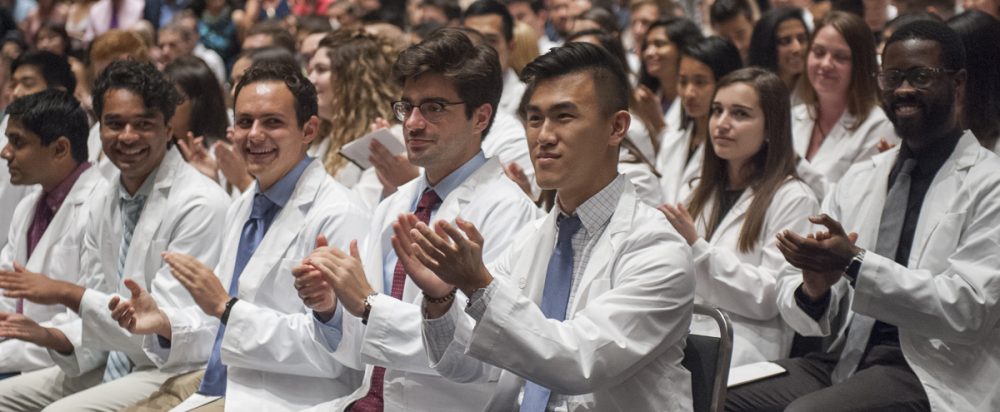Letters of Recommendation (LOR) : Overview
General Information
All medical and dental programs require letters of recommendation (also called letters of evaluation) as part of the application process. Please click on the link of your centralized application system below for more information about the letter writing process.
- AMCAS allows students to submit up to 10 letters of recommendation AACOMAS allows 6 letters and AADSAS allows 4 letters.
- Both medical and dental programs require a science faculty member letter of recommendation. VCU School of Dentistry requires 2 letters from a science faculty member.
- Many osteopathic medical schools require or strongly recommend a letter of recommendation from a DO physician.
- Students who are applying to MD/PhD programs should submit a letter from their research PI.
For more information about the process for collecting your letters of recommendation, please go here.
For more information about how to prepare your letter of recommendation writers, please go here.
Core Competencies for Medical and Dental School Applicants
Graduate and professional healthcare programs are focusing on a holistic review process of all applicants. The specific competencies these programs are looking for are included below. These are the competency skills that are included in the Pre-Professional Healthcare Journal .
Thinking & Reasoning Competencies
- Critical Thinking: Uses logic and reasoning to identify the strengths and weaknesses of alternative solutions, conclusions, or approaches to problems.
- Quantitative Reasoning: Applies quantitative reasoning and appropriate mathematics to describe or explain phenomena in the natural world.
- Scientific Inquiry: Applies knowledge of the scientific process to integrate and synthesize information, solve problems and formulate research questions and hypotheses; is facile in the language of the sciences and uses it to participate in the discourse of science and explain how scientific knowledge is discovered and validated.
- Written Communication: Effectively conveying information to others using written words and sentences.
Intrapersonal Competencies
- Ethical Responsibility to Self and Others: Behaves in an honest and ethical manner; cultivates personal and academic integrity; adheres to ethical principles and follows rules and procedures; resists peer pressure to engage in unethical behavior and encourages others to behave in honest and ethical ways; develops and demonstrates ethical and moral reasoning.
- Reliability and Dependability: Consistently fulfills obligations in a timely and satisfactory manner; takes responsibility for personal actions and performance.
- Resilience and Adaptability: Demonstrates tolerance of stressful or changing environments or situations and adapts effectively to them; is persistent, even under difficult situations; recovers from setbacks.
- Capacity for Improvement: Sets goals for continuous improvement and for learning new concepts and skills; engages in reflective practice for improvement; solicits and responds appropriately to feedback.
Science Competencies
- Living Systems: Applies knowledge and skill in the natural sciences to solve problems related to molecular and macro systems including biomolecules, molecules, cells, and organs.
- Human Behavior: Applies knowledge of the self, others, and social systems to solve problems related to the psychological, socio‐cultural, and biological factors that influence health and well‐being.
Interpersonal Competencies
- Service Orientation: Demonstrates a desire to help others and sensitivity to others’ needs and feelings; demonstrates a desire to alleviate others’ distress; recognizes and acts on his/her responsibilities to society, locally, nationally, and globally.
- Social Skills: Demonstrates awareness of others’ needs, goals, feelings, and the ways social and behavioral cues affect peoples’ interactions and behaviors; adjusts behaviors appropriately in response to these cues; and treats others with respect.
- Cultural Competence: Demonstrates knowledge of social and cultural factors that affect interactions and behaviors; shows an appreciation and respect for multiple dimensions of diversity; recognizes and acts on the obligation to inform one’s own judgment; engages diverse and competing perspectives as a resource for learning, citizenship, and work; recognizes and appropriately addresses bias in themselves and others; interacts effectively with people from diverse backgrounds.
- Teamwork: Works collaboratively with others to achieve shared goals; shares information & knowledge with others and provides feedback; puts team goals ahead of individual goals.
- Oral Communication: Effectively conveys information to others using spoken words and sentences; listens effectively; recognizes potential communication barriers and adjusts approach or clarifies information as needed.
Holistic Review Metrics for Pre-Medicine and Pre-Dentistry Students
- Cumulative GPA
- Biology, Chemistry, Physics, Math (BCPM) GPA
- Grade trend
- Health care experience
- Shadowing hours
- Community service
- Leadership experience
- Research experience
- Life experience
- Diversity (broadly defined)
- Obstacles overcome
- Maturity/Respect
- Motivation
- Inquisitiveness/Intelligence
- Intrapersonal skills
- Interpersonal skills
If you have any questions or concerns, please email preprofadv@vcu.edu or call 804-827-1645 to speak with a Pre-Professional Health and STEM Career Advisor.
